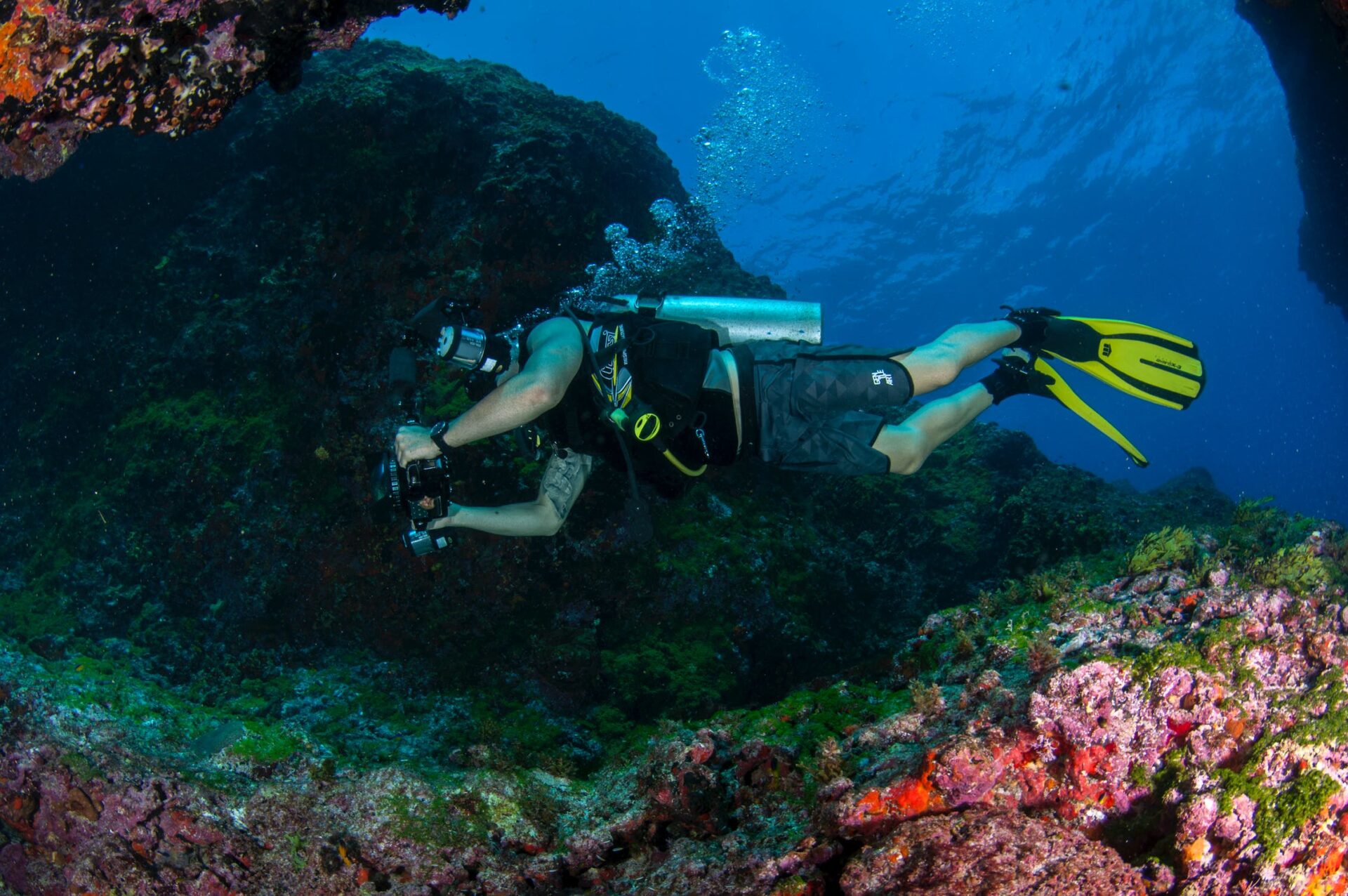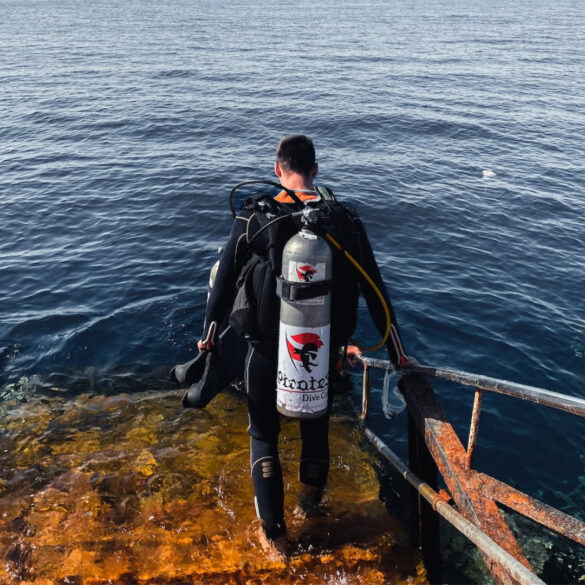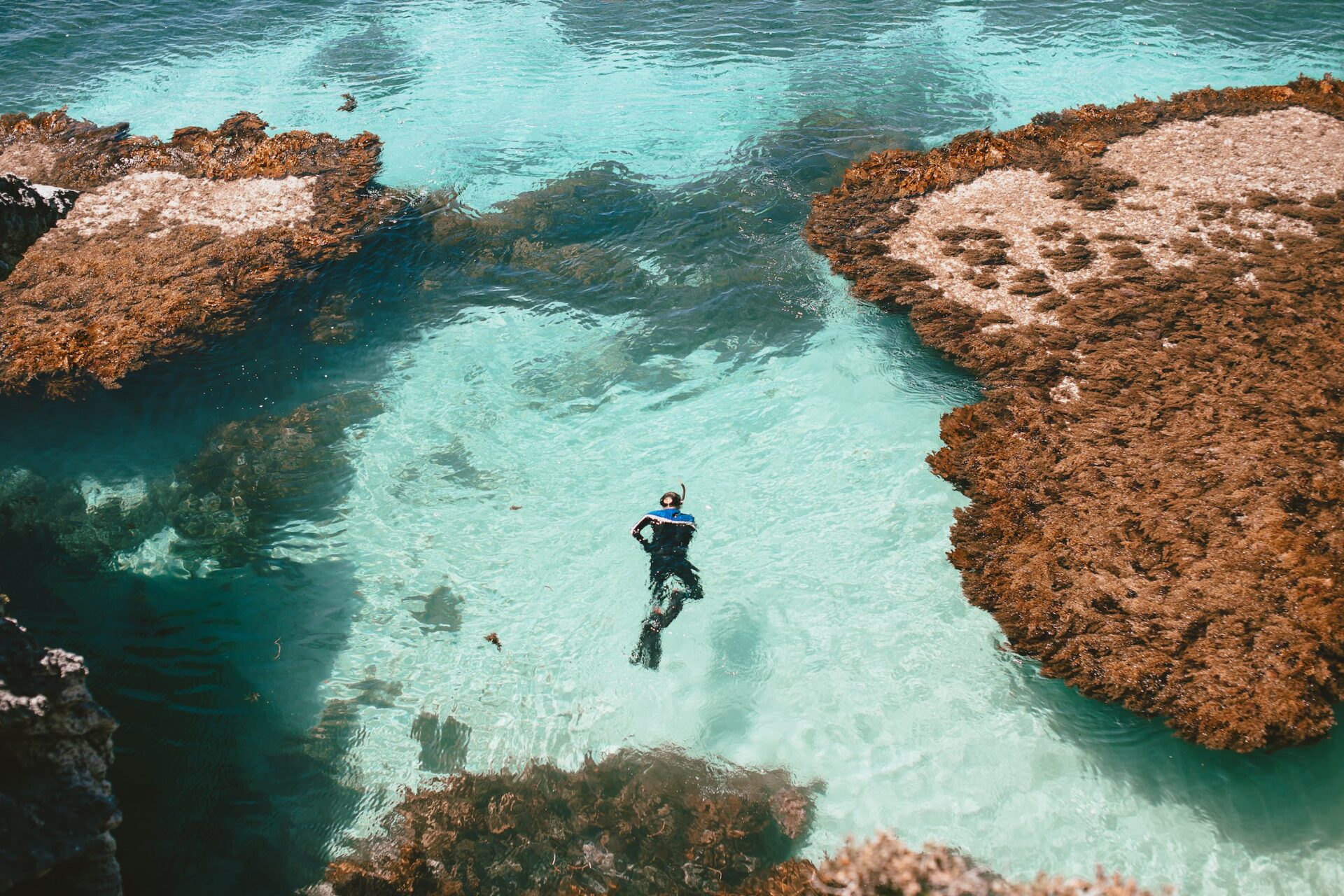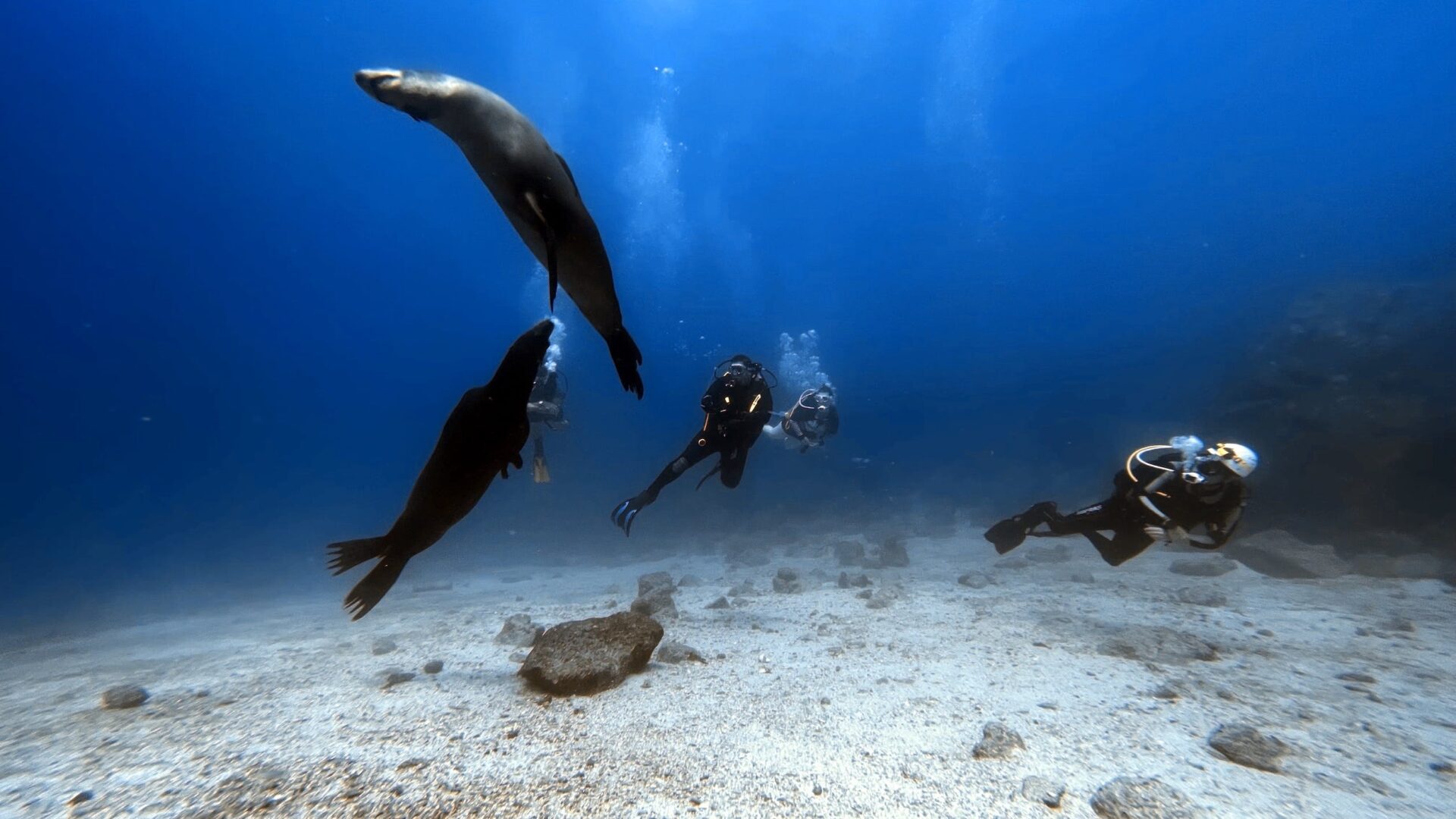Do you need to know how to swim first before going on a scuba dive? This question is probably the first thing that comes to mind when a non-swimmer individual wants to learn scuba diving. Most people believe that all divers can swim very well, but that is not the case. What is more important than knowing how to swim is to be comfortable and confined in the water. Unless a diver feels comfortable in the water, they will not be able to learn to dive and are a risk to themselves, and their dive buddy..
The Short Answer:
Yes, basic swimming skills are required for most scuba certification programs. A non-swimmer will be challenged to enroll on the open water diver certification as it requires the student to undergo a swim test. It’s not a rigorous test, if you can float then you are most of the way there. The test asks for you to tread water for 10-minutes without aid. You will also need to either swim 200 meters without aid or 300 meters with your snorkel, mask and fins. Another important item to consider is if the new diver lacks comfort in the water, this may result in the new diver becoming tired quickly.
Why is Swimming a Prerequisite for Scuba Certification?
Safety Concerns
You don’t do a lot of swimming when you’re diving. Your BCD and breath control regulate your buoyancy, and the majority of your speed to go through the water will come from your fins. The reality is that accidents do occasionally occur.For example lack of attention or a leak may lead to an out of air situation. In a situation like this you must be able to care for yourself and get to safety. Knowing how to swim makes it possible and gives you options. Knowing how to swim allows divers to quickly and safely save themselves or others in case of an emergency. Additionally, being a competent swimmer can help a diver conserve energy while diving and allow them to remain aware and focused as they explore the ocean’s depths.

Building Comfort and Confidence
One of the biggest obstacles for new scuba divers is fear of the water, which will be heightened if they are non-swimmers. Even in shallow water or swimming pools, you still struggle to get confident, preventing you from focusing on the skills that must be learned to become a competent diver.. It can be a little stressful for a beginner diver to get in the water and dive for the first time. A good swimmer will acquire diving techniques and concepts more quickly and easily since they feel more at ease in the water.
Practical Training Aspects
In addition to the primary techniques, swimming is very important if you want to become a skilled diver. In order to qualify as an open water diver (entry-level scuba diver) or even to progress through the open water course, the student divers must finish a 10-minute swim, float, or tread water without the use of any swim aids to prove that they can comfortably maintain themselves in water.
What If You’re Not a Strong Swimmer?
Taking Swimming Lessons
For people who are eager enough to learn how to scuba dive, but don’t know how to swim we would recommend that you consider taking swimming lessons. Depending on where you live, you might be able to find a local diving shop that offers swimming classes and hire your own private swim instructor. As an alternative, a lot of beach vacation spots have swimming instructors on staff. If you’re serious about learning to swim and dive but are having trouble finding a group, you might want to consider taking a trip to the pool or a beach with your family or close friends and practice your swimming techniques.
Try Snorkeling First
If you are hesitant to scuba dive as a non-swimmer, you may want to try snorkeling first. Snorkeling is a fantastic experience because it is a safe and easy water activity. It also familiarizes participants with the fundamentals of diving gear, such as how it feels to wear a mask, how to use fins, how to breathe through a mouthpiece, and learning the basics of airway control to keep the sea water out. To know more about the basics of Snorkelling, you may visit this article.
Discuss with Dive Instructors
If you can’t swim, or can barely swim, you can seek advice from dive instructors. Dive instructors help novice divers gain their confidence so they can be capable and competent divers. Additionally, they may offer guidance, additional training, or even referrals to swimming coaches.
Exceptions and Alternatives
Discover Scuba Diving Programs
Some entry-level scuba diving programmes don’t ask you to pass a swimming test. An option for non-swimmers is the Discover Scuba Diving program; in this program, only basic swimming abilities are required. You will be able to master the fundamentals of scuba diving during this try-diving session, and you’ll get all the gear you need for a carefree and enjoyable dive. To assure your safety, a qualified, experienced dive instructor will also be watching over you closely.
Specialized Dive Courses
Specialty courses are a great way to experience and learn about the areas of diving that interest you most. During these courses knowledge is not formally tested but applied on actual dives. And there is no better way to learn than to do it under the guidance of a teacher who shares your interests.
The Role of Dive Buddies
A good dive buddy is a must-have for safe scuba diving. Diving with a buddy promotes safe and fun diving experiences and this also applies for divers who are not strong swimmers. A dive buddy provides emotional comfort in knowing that you won’t be alone if something goes wrong. As a result, this lowers your stress levels and helps you freely enjoy your scuba diving activities.
The Emotional and Psychological Aspect
Overcoming Water Phobias
Many dive instructors have engaged with beginners who were very nervous about learning to dive, but who overcame their fear, quite literally, within minutes of getting wet. That is why it is absolutely essential for anyone hoping to go scuba diving that they make sure they possess basic swimming skills along with confidence and comfort in the water. Being able to swim will help keep divers safe and increase their enjoyment of their time underwater..
The Rewards of Diving
The joys of being one with nature – to have the privilege to swim with turtles and other extraordinary marine life underwater makes all of these efforts to learn all worthwhile. Knowing how to swim and being confident and comfortable underwater provides us with many benefits – not just safety but also the feeling of excitement. The thrilling experience and the delight in making the whole dive experience fun without missing any excitement as you interact with the underwater world.
To sum it all up
Swimming has always been an essential part of open water and professional diving. The better swimmer you are, the more prepared you’ll be for any underwater activity. If something goes wrong or you run into issues, being able to swim well is helpful.
On the other hand, don’t worry if you’re not a good swimmer. There are still a wide range of options for you to learn to become one. Seek training, discuss concerns with local dive shops, or join diving communities for support. Don’t forget that learning to swim can be enjoyable as well as rewarding if you put in the work!
We at Diving Notes, encourage you to have at least a basic level of comfort and experience in the water to make the most out of your scuba diving adventure.
Don’t forget to share this helpful information with your friends!
Updated on: December 05, 2023




